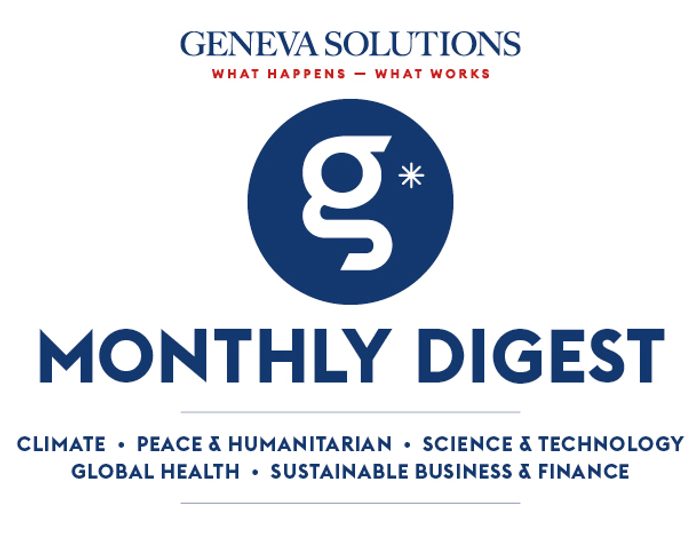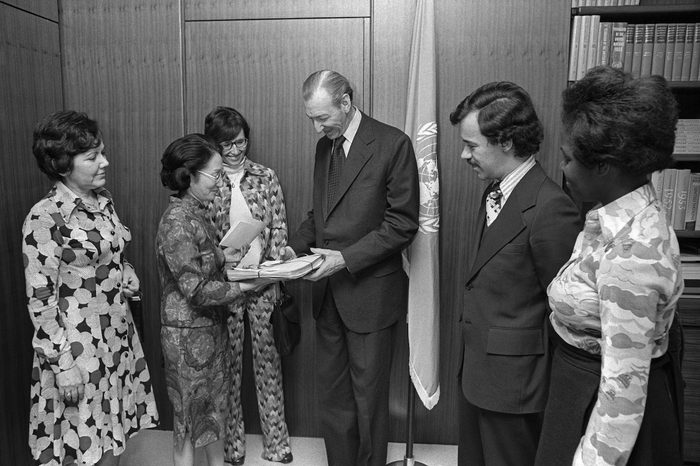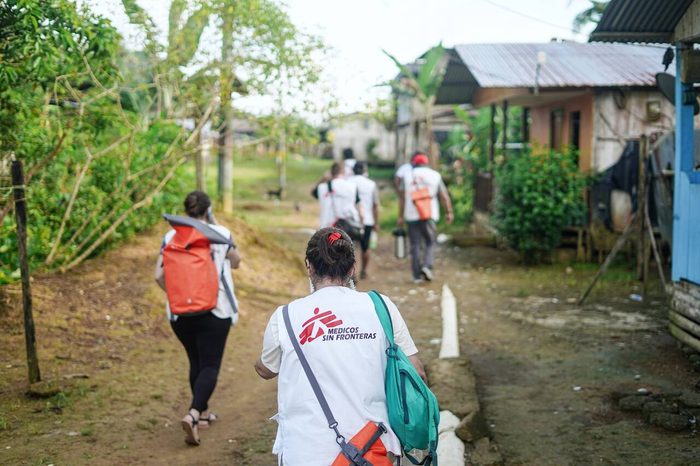 |
Hello, this is Michelle, with our top stories of the month. April was a nice respite from international Geneva’s usual conference-packed schedule – with the exception of the Human Rights Council, which delivered timely decisions on Haiti and environmental rights – despite US plans to undermine it – on the first days of the month.
Meanwhile, crises across the world continued to unravel. In Afghanistan, Taliban hardliners refusing to budge on women restrictions have put the UN’s ability to work in the country in jeopardy. Sudan was catapulted to the top of the headlines as fighting between the military and armed opponents for power plunges the country into a civil war and disregarded ceasefires render aid delivery almost impossible.
As war in Ukraine rumbles on, we asked diplomats, UN officials and experts what the future holds for the country, the region and refugees scattered across Europe. But beyond its direct impact, the conflict is also sending shockwaves across regions with signs of a possible collapse of Ukraine and Russia’s grain deal. If it comes to that, the UN’s newly appointed hunger chief will have her plate full, as the agency delivers food to the poorest of countries.
On other news fronts, we looked at how lacking regulation of lab work may put them at risk of negligently causing the next pandemic. We also took a dive into how the UN is faring on its gender parity goals. We crunched the numbers, and, spoiler alert: it's not so great. |

|

Patricia Koo Tsien, chairperson of the UN Ad Hoc Group on Equality for Women, and Armando Duque, chairman of the UN Staff Council, present a petition signed by 2700 staff members to secretary general Kurt Waldheim requesting an affirmative programme of action to end discrimination against women in the secretariats and agencies, 7 March 1975. (UN/Teddy Chen)
|
|
Historian Myriam Piguet on the fight for gender equality in the early years of the UN:
“The UN Secretariat News was a monthly newspaper written by international civil servants for international civil servants. In the 1950s and 1960s, you would see a lot of comics that were quite sarcastic, making fun of the role of secretaries with the image of a sexually attractive, young and beautiful woman. They would also joke about the role of the elevator lady and the woman guide, and nobody would do or say anything about it.”
Paula Dupraz-Dobias
|
|
Here's what else happened
|

The MSF team walks through Pie de Pato, Chocó, towards a training day for community agents on 8 March 2023. (Geneva Solutions/Daniela Díaz Rangel)
|
|
|
Russia-Ukraine war: What are the risks of escalation?
Russia’s invasion of Ukraine is well into its second year with no end in sight. At a debate organised by Geneva Solutions, the Geneva Press Club and Le Temps, ambassadors to Moldova and Ukraine were joined by security, peace and migration experts to weigh the different scenarios that could unfold and what it means for Ukrainian refugees across Europe who are eager to go home but whose lives carry on despite the war. For the UN’s refugee protection chief Gillian Triggs, who also spoke at the event, the EU needs to start thinking long-term.
View the debate again
|
|
|
GS news is a new media project covering the world of international cooperation and development. Don’t hesitate to forward our newsletter!
Have a good day!
|

|
|
Avenue du Bouchet 2
1209 Genève
Suisse
|
|
|
|









